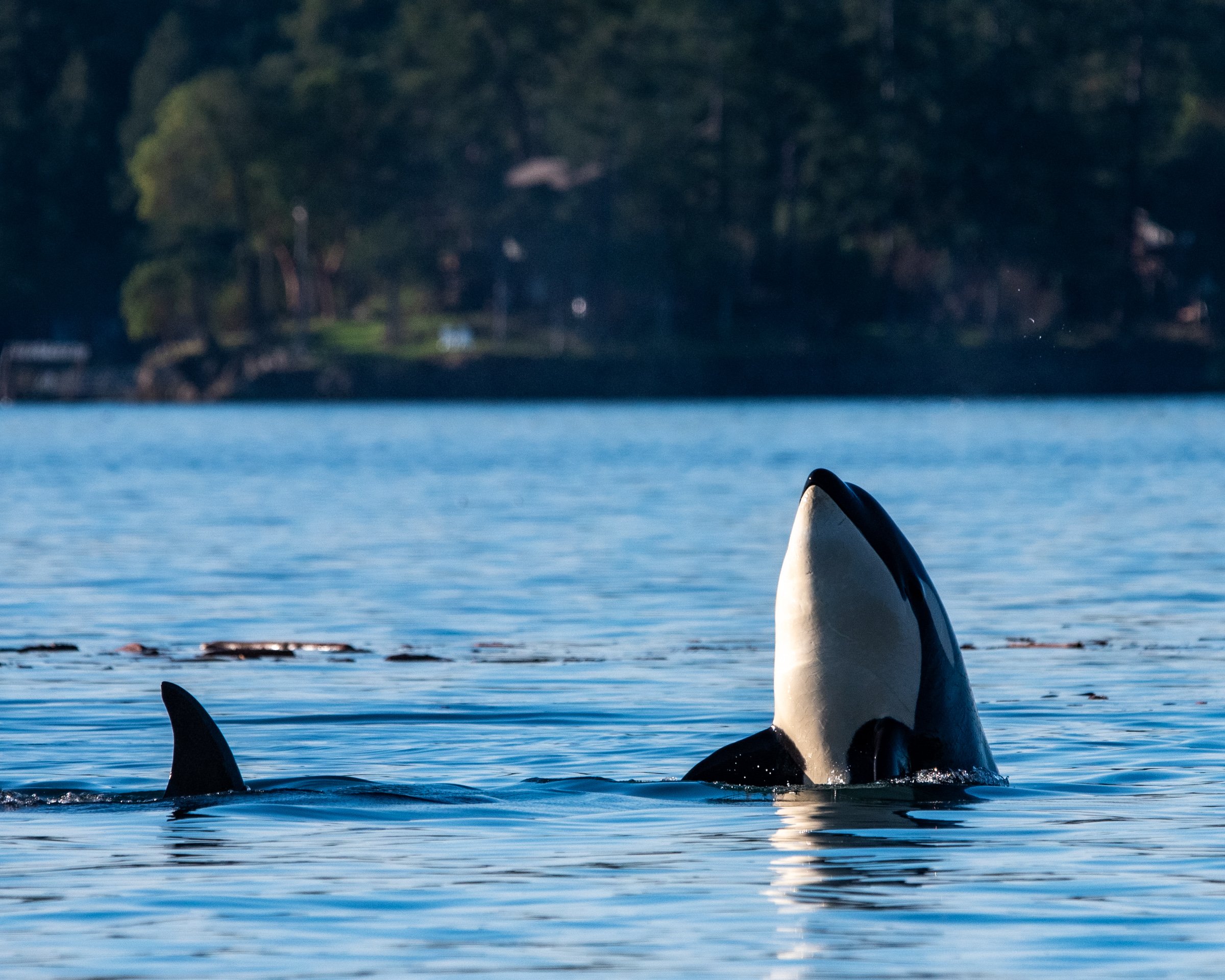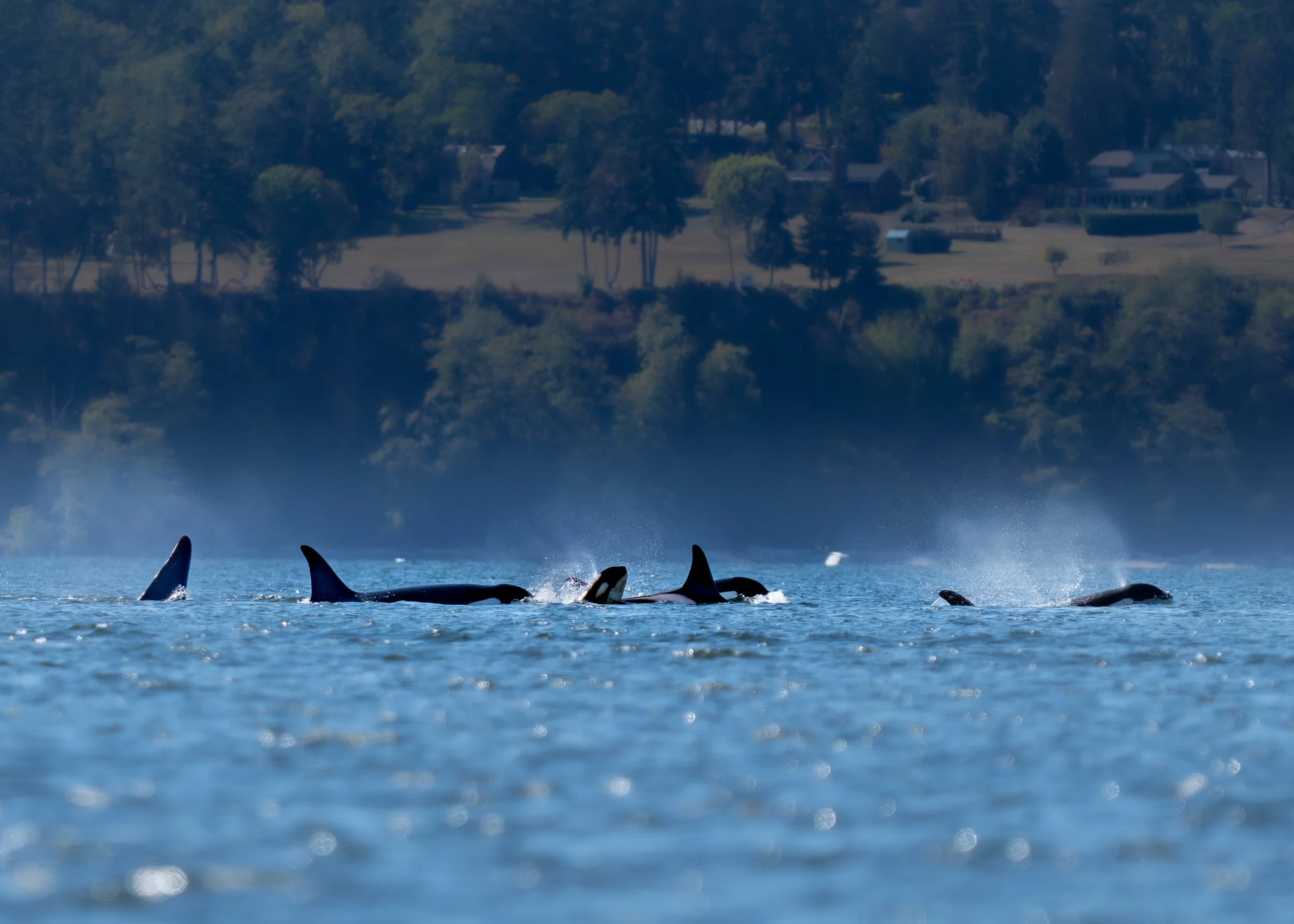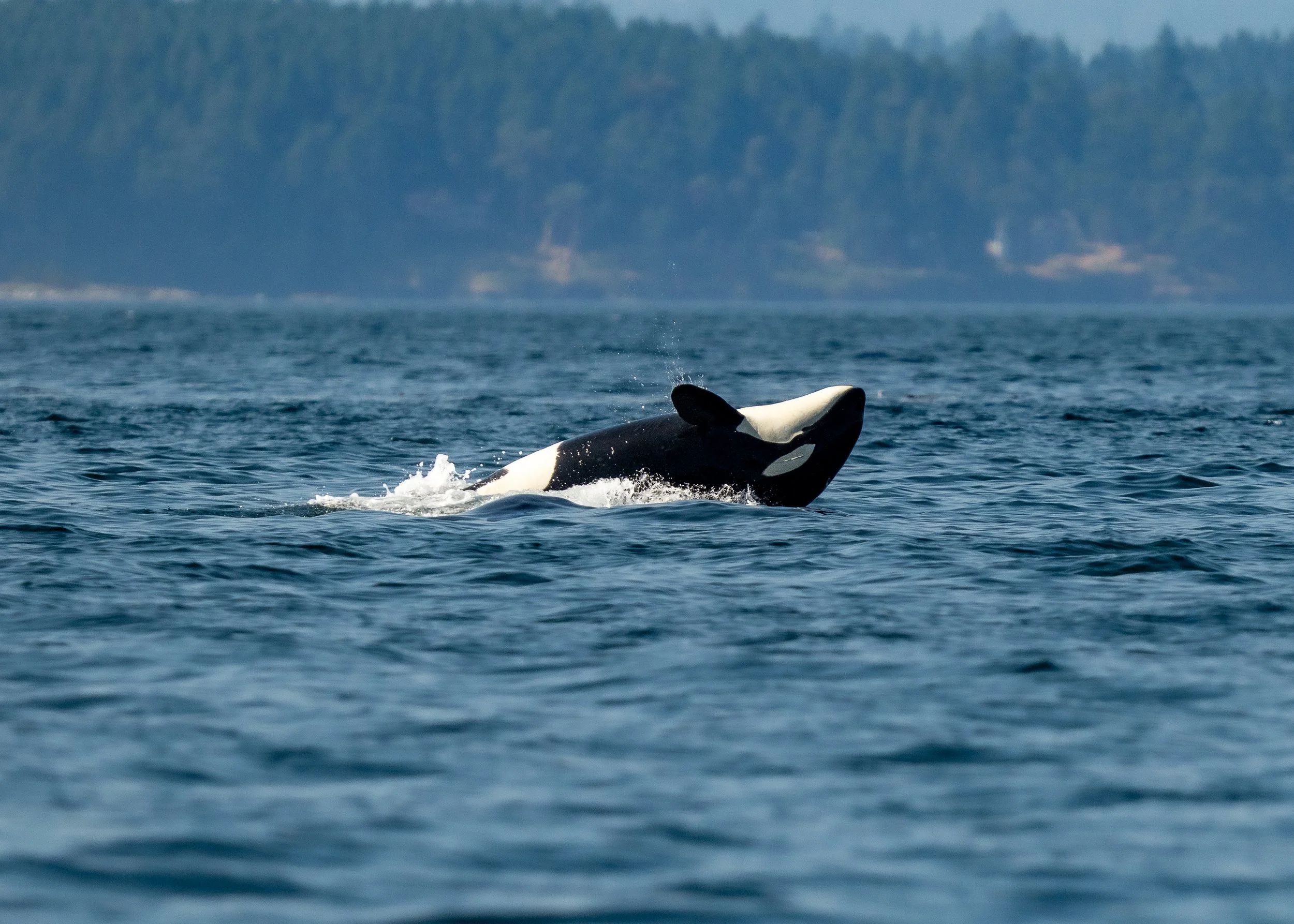
The Mysterious World of Orca
Or as we falsely also call them Killer Whales.
There are three main ecotypes of orca: transient, oceanic, and resident, which are divided into Southern and Northern Resident Orcas in the PNW.
They are matriarchal creatures of power, resilience, familiar bonds, and love. Although the transients and oceanic types are apex predators and sometimes found hunting the largest marine mammals, they have never been known to harm a human in the wild.
Isn’t that wild?

Less than 75 Southern Resident Orcas Remain
They were added to the Endangered Species List in 2005 when there were 86 individuals across the three matriarchs, or also known as J, K & L pods.
Their largest threats are man made.
Shortage of available prey.
Between the habitat destruction from the Lower Snake River dams to overfishing, most salmon species the SROs depend on - specifically Chinook and others, such as Sockeye and Coho - are also endangered.
The SROs are effectively starving to death in front of our eyes.
Vessel interaction and marine noise.
High marine traffic, supporting industrial and commercial activities, has increased fatal orca interactions by 290%.
High marine traffic also equates to high noise, diminishing the orcas’ ability to use echolocation to find any available prey.
Contaminants and pollution.
Human activities release contaminants into the environment via municipal and industrial wastewater, urban and agricultural runoff, and other processes.
Contaminants can harm orcas' immune and reproductive systems. They also contaminate their prey sources, which can affect the orcas for decades.
It’s a Social Justice Issue
There is no speaking of orcas without speaking of wild salmon, and no speaking of salmon without speaking of Indigenous Tribes such as the Coast Salish People, like the Lummi and Nez Perce nations. To them, orca are Q'ellhólmechen, our people who live under the sea.
Protecting the orca means honoring tribal rights that have been violated since 1855.
We can still help the Southern Resident Orca
The single most impactful action to take for the health of the Orca and the salmon is to Breach the four Lower Snake River Dams Now.
Go to cetaceans.org to submit a letter to your representative and spread the word on social media.
Support recognizing the Endangered species for the individuals that they are.
Go to Legal Rights for the Salish Sea to urge congress to recognize the inherent rights of the Southern Resident Orcas who should already be protected under the Endangered Species Act.




















